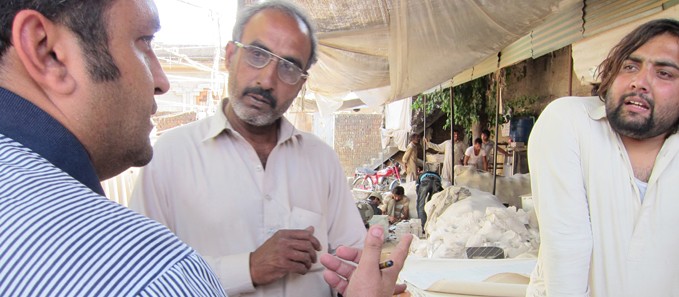About

Nearly a quarter of the world's population lives on less than $3.65 per day (adjusted for purchasing power, using 2020 prices), with the frequent hunger, chronic health problems, and everyday indignities that such poverty entails. How can the living standards of the poor be raised? The Center for Development Economics and Policy (CDEP) supports microeconomic research to investigate the sources of poverty and to inform practical interventions to address them. We proceed from the view that we need to understand the world in order to change it: we need to understand how markets work, and so often fail to work, in developing-country settings in order to improve the outcomes that they generate for the poor. The Center supports a range of methodological approaches that share high standards of intellectual rigor and the ultimate goal of reducing poverty.
The Center has three core initiatives, the Human Capital Initiative, the Firms and Innovation Initiative and the Politics, Institutions and Conflict Initiative, described in more detail below. The Center hosts a regular seminar and other events, co-sponsors a brown-bag workshop for graduate students, funds promising student research, and provides an intellectual home for students and researchers at Columbia and beyond who are interested in development economics and policy.
The Human Capital Initiative focuses on understanding the productive potential embodied in individuals – their skills, health, and other capabilities. Particularly in developing countries, this is the main asset people own. The initiative focuses on two questions:
- What are the factors that shape individuals’ accumulation of human capital? This question leads us to investigate what factors lead people to invest in health or education for themselves, for their family members, or their fellow citizens, as well as how the structure of education and health markets affects countries’ levels of human capital.
- What are the consequences of such investments for economic outcomes? This question encompasses issues such as to the extent to which increased human capital raises people’s wages, and the extent to which it enhances countries’ economic growth.
More details are on the Human Capital Initiative page.
The Firms and Innovation Initiative is motivated by the view that one of the best anti-poverty programs is a steady job, offering safe working conditions and a wage that supports the basic needs of a household. Such jobs are more likely to be available when an economy’s industrial sector is thriving, when firms are growing and investing in their workforces. Innovation – understood broadly to mean all types of learning: learning how to produce new products, how to reduce costs, how to upgrade quality, how to manage an organization – is a key driver of industrial development. Why are some firms able to innovate and some not? Why are some industries and regions populated by dynamic, innovative firms and some not? What role can public policy play in overcoming market failures and stimulating innovation and industrial development? These are core questions for the initiative.
More details are on the Firms and Innovation Initiative page.
The Politics, Institutions and Conflict Initiative sees conflict and disorder as one of the greatest threats to development, and the development of good government as a means to economic prosperity as well as an important end in itself. But what is “good government” and how does it come about, both historically and in the modern day? What causes conflict, and what policies and interventions can move violent fighting into the realm of peaceful political competition?
More details are on the Politics, Institutions and Conflict Initiative page.
CDEP is a research center of the School of International and Public Affairs (SIPA) at Columbia University. Additional support for the CDEP Development Seminar has been received from Columbia Business School and the Department of Economics. Participants in the Center include scholars from across Columbia University, including the Department of Economics and Columbia Business School.
